Charles Pakana (Victorian Aboriginal News):
I’m joined today by Aunty Muriel Bamblett, a Yorta Yorta, Dja Dja Wurrung, Taungurung, Boonwurrung woman who since 1999 has been the CEO of the Victorian Aboriginal Child Care Agency, VACCA. She’s also the chairperson of the Secretariat of National Aboriginal and Islander Child Care, which is a national voice for Aboriginal and islander children. She’s on numerous other boards and committees, but really far too many to go through at this stage. Aunty Muriel, thanks for joining me on the podcast.
Aunty Muriel Bamblett (CEO, VACCA):
Thanks for having me. It’s great to be here.
Charles:
Aunty Muriel, VACCA has been servicing children, young people, families, and community for over 40 years, and it’s recognized as the largest of its kind in the country. What do you believe the voice will do in adding to the value of the work already being done by VACCA and other organizations of its kind around Australia?
Aunty Muriel:
Look, I think it will open doors. I mean, at the moment, much of what we’re doing is really based on being invited into the room or sort of imposing ourselves into the room. But I think there is, at the moment, no real call on any government department to actually have us in the room. And so I think setting up broad agreements, and I think in Victoria, it aligns very much with the treaty making. If you think about the treaty and with the work of the First Peoples’ Assembly of Victoria, it’s actually changing the nature of our relationship with government. And so rather than be at the whim of government, we will actually have a voice to be able to say with regard to, “We are Aboriginal and Torres Strait Islander people. We have rights before the system and we want better justice outcomes.”
But at the moment, they’re basically putting out Western constructs of what don’t work for all Australia’s people. And Aboriginal people have been leading. The Aboriginal legal services drove the model of community legal services. And the Aboriginal health services drove the model of community health services. So Aboriginal people have led in delivering better models of service delivery. And what we’re finding, particularly in child welfare is that we are starting to change the way that child welfare is being delivered. So in Victoria, we’ve taken on guardianship or responsibility for Aboriginal children in out-of-home care, and these are children on long-term orders. And what we’re finding is more children are going home, more children are staying home, and parents are getting services that they’ve never actually got in the past. So we are changing the dynamics of how Aboriginal people get serviced in this country.
Charles:
Let me play devil’s advocate then, because some might say that if you are already having impact here in Victoria and right across Australia, why then is a voice needed? What additional value is that going to give? Because you’re kicking goals already.
Aunty Muriel:
Look, I mean, I think you know the history of Victoria. It’s political activism. We’ve had Aboriginal people, we have Aboriginal leaders, we have so many agreements and Aboriginal forums, we have caucuses, and Aboriginal people sitting around justice, around family violence, around child welfare, around housing, around health, all of those big… And then we’ve got governments driving reform, and you’ve got the premier that says, “We don’t want just Aboriginal people to sit at the table. We want Aboriginal people to own the table and to be able to come to the table with what it is the issues. But we also wanted to be able to deliver on outcomes.”
Those agreements are not in other states and territories. Those voices are not in those other states. There hasn’t been the investment. In Victoria, we’ve invested heavily in policy and advising. Many years ago when I started at VACCA, we had an inquiry. There was no Aboriginal voice in it. That meant that we didn’t inform them about how Aboriginal children in the child welfare system were being treated differently. There was a report that was done on us, not with us, and it was done for us, and it just didn’t even pick up the historical roof, the injustices, the need for culture, the importance of culture, and how many children were being placed away from their families. So the things that were important weren’t being captured, and that’s what Aboriginal voice puts in the room, but it’s not being done nationally. The work that’s in Victoria, if it was emulated in every other state and territory, then voice would be embedded in every government department.
I’m part of the Coalition of Peaks, and we are finding through Close the Gap an amazing agreement driven obviously by Pat Turner who’s been worked in government for so many years and led so many reform agendas. We’ve been able to get greater engagement of Commonwealth states and territories around Close the Gap. And we are seeing voice in action. Now, what we need to do is be able to get greater voice into every state and territory, and get greater engagement, and remove a lot of the fear that voice is somehow detracting from every other Australian. Aboriginal people having a voice actually adds to the richness of Australia. And I think-
Charles:
Well, let’s just go back to, you mentioned that you’re on the Coalition of Peaks, which is one of the key partners involved in the development and monitoring of Closing the Gap. Now, we’ve got… What? 19 metrics, I believe in Closing the Gap?
Aunty Muriel:
I think these full reform priorities, and so those are obviously shared decision-making. And so including Aboriginal people in decision-making, investment in Aboriginal community control, mainstream accountability, and data. And there’s 17 targets.
Charles:
17 targets, but only four of those are on track.
Aunty Muriel:
Look, and I mean the thing is that what we are putting in, we’ve had four policy partnerships that have been established. And so those are early years in child protection, housing, health and disability. And so we know that we’ve got a truckload of work, but what we’ve seen is, particularly with this national voice, there’s national leadership. So things are happening, but people aren’t seeing them quick enough. So we’ve now established a national Aboriginal and Torres Strait Islander housing peak. And so they’re very much building off the Victoria model of our housing strategy.
Charles:
But the fact is that with the voice, do you believe really to your heart that the voice will work with the Coalition of Peaks, with government to really start closing the gap? Because we’re running on target with four of the 17, some of them are going further and further behind. What are some of the concrete ways in which you believe that the voice can assist in achieving what successive governments have just failed to do?
Aunty Muriel:
Look, I mean, there’s no doubt that the issue will be our capacity to service the voice as Aboriginal people. So we have to have our best hunters and gathers in the room. So it goes down to local. Obviously the structure that they’re proposing under the Voice is to have local Aboriginal Torres Strait Islander people across all the states and territories to have hear local voice, to be able to have representation from each state to be able to build a better advice system to the government. Now, that to me is the critical element because you’ve got to be able to get Aboriginal people in the voice, but you’ve got to be able to service it. And I think our Aboriginal people, we’re going to have to step up to the plate to be able to take good advice to government, to be able to be informed, to be able to lead on what needs to happen, what needs to work. And so we can’t leave it to politicians. We have to have Aboriginal people on the ground.
As you can see, Victoria is already leading in many of those areas. So if we’ve got a housing policy that we’re taking up to the government, if we are really arguing, and if at the Commonwealth they’re using our structure, if you look at our justice agreement, they’re looking at that to inform the Commonwealth state national direction on justice. Many of the things that Victoria has is actually leading, but as I said, it’s not being driven in other states and territories.
Charles:
One of the things you said just previously was, “We need our best hunters and gathers.” This takes me back about four years ago to the formation of the First People’s Assembly of Victoria, and I sat down to speak to Aunty Jill Gallagher, and she was saying exactly that same thing. It’s a model that definitely worked with the Aboriginal electoral role and the election of the First People’s Assembly of Victoria. Do you believe that that is a model that can be used as a basis right across Australia to start implementing local and regional voices?
Aunty Muriel:
Look, I think you have to, but I think that we, ourselves, need to invest in our Aboriginal people. I think there’s a danger that if we move too much to education and what lawyers and legal people without having Aboriginal never lived Aboriginal experience. And I think one of the things that we are really bad at is preferencing Western knowledge over Aboriginal knowledge and Aboriginal skills. And so we need to be able to make sure that our young people coming up really do still have Aboriginal values, principles, things of respect and things that make our culture live. But we cannot leave the past and just accept the future and a different way of working. Aboriginal people, we need to be Aboriginal people. And what does that mean? If it means that we have to leave our Aboriginality at the door to go and work in a workplace, then that doesn’t bring the value of who they are. And this is the big argument we’re having with government at the moment. They want to put more Aboriginal people in government, but they don’t want to respect or acknowledge that they’re Aboriginal people.
Charles:
This is actually in a bit of contrast to what Jacinta Price said on Friday at the National Press Club and other prominent No campaigners have said, where, “Look, you’ve just got to recognize we’re just now all Australians and we have to be treated all very much the same.” And we just look at the marginalized communities, whether they’re black, white, or whatever, you are saying for Aboriginal people, it is critical or essential that we also embrace our Aboriginality. This is something that the No campaign seems not to want or not to be advocating for. Why is it so important though?
Aunty Muriel:
Look, I mean, as Aboriginal people, the people that we see, and I said to Linda and Bernie yesterday, I said, “You are up there with the best hunters and gathers. You go into a room, you are informed, you’ve got the community behind you, you’ve got Patrick Dodson.” These people bring Aboriginal knowledge and everybody soaks it up and they have a voice and they’re respected. But I think the thing is that not everybody sees Aboriginal people in that same light. And it’s very hard. It’s a turkey shoot out there. Every time an Aboriginal person puts their head up, people come hunting for them, they find something to bring them down. And so we’re not good there ourselves. We’re like crabs in a bucket. We get somebody up there that’s doing really deadly and we’ve got to pull them back in the bucket with us. So it is about, I think, us trying to change the way we become very laterally violent against our own people, and sort of acknowledging voice, acknowledging skills.
But I think if we don’t accept the fact that we’re just enterprise, and Warren Mundine really, from my point of view, pitching the very conservative view on being Aboriginal and that all Aboriginal people, we should all be like all other Australians. We are not like other Australians. We’re first peoples. We have a very much different history of this country. We have rights to this country. And I think Australia doesn’t recognize we are the first peoples. We are the first peoples of this country. And I was watching, interestingly, the Māori and how they’ve got a voice in parliament. And their rep in parliament, he put all over his face, all of the markings in traditional language of the Māori people and how he espouses to deliver on treaty, which is sort of symbolic. I mean, you cannot walk away when you see him walk into the room. He’s got his values printed all over his face. So he’s very much not only voice, but he’s actually putting Māori people and who they are, their vision, their culture, their ceremonies, everything into every meeting.
Charles:
Do you think that a voice will actually bring benefits to Greater Australia, not just to Aboriginal people, but all of Australia? And this is something that hasn’t been talked about much.
Aunty Muriel:
Look, absolutely. I think you can’t just roll us out for a ceremony at the start like we’re going to have dances, and we’re going to-
Charles:
The tokenistic stuff.
Aunty Muriel:
… have smoking ceremony, and then we tick the box and move on. And I think the value is that Aboriginal people, the knowledge we bring. There’s so many things, areas, if you think about what we bring around medicine. We could learn a lot more from traditional owners about medicine, about food, about obviously things that historically we’ve done. But I just think embracing Aboriginal people and our culture, for me, going to the Northern Territory. We just had a SNAICC Conference, four days, 1,600 people turned up, and it was an experiencing culture. And what we were all saying is we want to tip Australia upside down just for a little while so we can embed a lot of what we saw up there.
Yes, we’ve got all the solutions for justice, for family violence, but every day we’re putting back into people lost culture. We’re putting back into children that have been removed, returned to country, genealogies, confirmation of Aboriginal, things that they’re their basic rights. We’re restoring basic rights for indigenous children and families that have been destroyed and torn away. They don’t have to do that in the Northern Territory. They’ve still got connection to land, they still have language ceremonies, those things.
So it really is tragic when you work in our sector down here, and you work with our families, and the thing they crave most is to know who they are, where they’re from, and have that greater connection with their cultural base, which is very much invisible. So I think for me, the voice, all of the work around treaty, I mean, obviously the restatement from the heart talks about the fact that it’s about truth telling, it’s about really voice, and it’s also about treaty. And so the three elements. We are going to go with the voice. We hope that eventually Australia will sign up to a treaty with its first peoples, and then really tell the truth about what happened.
Charles:
Before I let you go, there’s obviously a lot of fearmongering around the fact that the voice really is a segue into treaty. Despite what Warren Mundine has also said very recently where if the no referendum or the no vote gets up, then that in itself is a pathway to treaty. But what do you think people are fearful of when it comes to treaty? And why should they not be fearful of it? We’re talking about non-Aboriginal people.
Aunty Muriel:
I mean, I think my experience just being on the First People’s Assembly, a lot of the work that we did very early on was really do the myth busting. So I think the Deadly Campaign was a really great introduction to the treaty. So we wanted to really remove all the hysteria to be able to get Australia to really understand that there’s not all this money going into Aboriginal. Yes, there’s a welfare dollar, but this view that Aboriginal people get all this money and that we get free houses-
Charles:
And where is it?
Aunty Muriel:
… and that if there’s a treaty, we’re going to claim everybody’s backyard. And so I think the whole thing about it, it was a lot of fearmongering. And to me, treaty, it’s two elements. One is about nationhood and how do we restore. What we’ve seen through treaty and native, even the agreements on native title having strengthened the Aboriginal communities because you would’ve seen them. You’ve got Taungurung doing more things-
Charles:
Absolutely.
Aunty Muriel:
And then you go down to Gunditjmara and the eel trap fishing, and you see cultural revival. So when we were on the assembly, we went to different communities and we participate in ceremonies and things. We were exposed to ceremony. I want all our Aboriginal people to be exposed.
Charles:
What about non-Aboriginal people, though?
Aunty Muriel:
They can enjoy those. I mean, people come here from other countries, they want to experience Aboriginal, but they’ve got to go to the Northern Territory to do that. Why haven’t we got this and that in every state and territory? You’ve got to go into the museum to see Aboriginal people on display in Victoria.
Charles:
And do you believe the voice will help facilitate that sharing of culture across Australia?
Aunty Muriel:
Look, I think the voice will improve education and awareness. And so I think the voice will particularly challenge institutions to start to take on greater understanding of Aboriginal where we fit within Victoria or nationally, obviously. And I just think it will only add to the fabric. But I mean, I think the thing is that Australia’s very weak on implementing human rights conventions. And so I think that has to be the background of our work is to look at how do we actually improve human rights for Aboriginal people? How do we actually restore back to Aboriginal people? I think it’s about restoration, reclaiming, and rebalancing back Aboriginal people as true traditional owners of the country. When you go to New Zealand, as soon as you step off the plane, you know that you can see visually-
Charles:
You’re immersed in their culture.
Aunty Muriel:
You’re immersed in the language. I don’t understand half the language of New Zealand because it’s very much Māori. You don’t have that same exposure in Australia.
Charles:
Aunty Muriel Bamblett, thank you for your time.
Aunty Muriel:
Thank you. Thanks for having me.


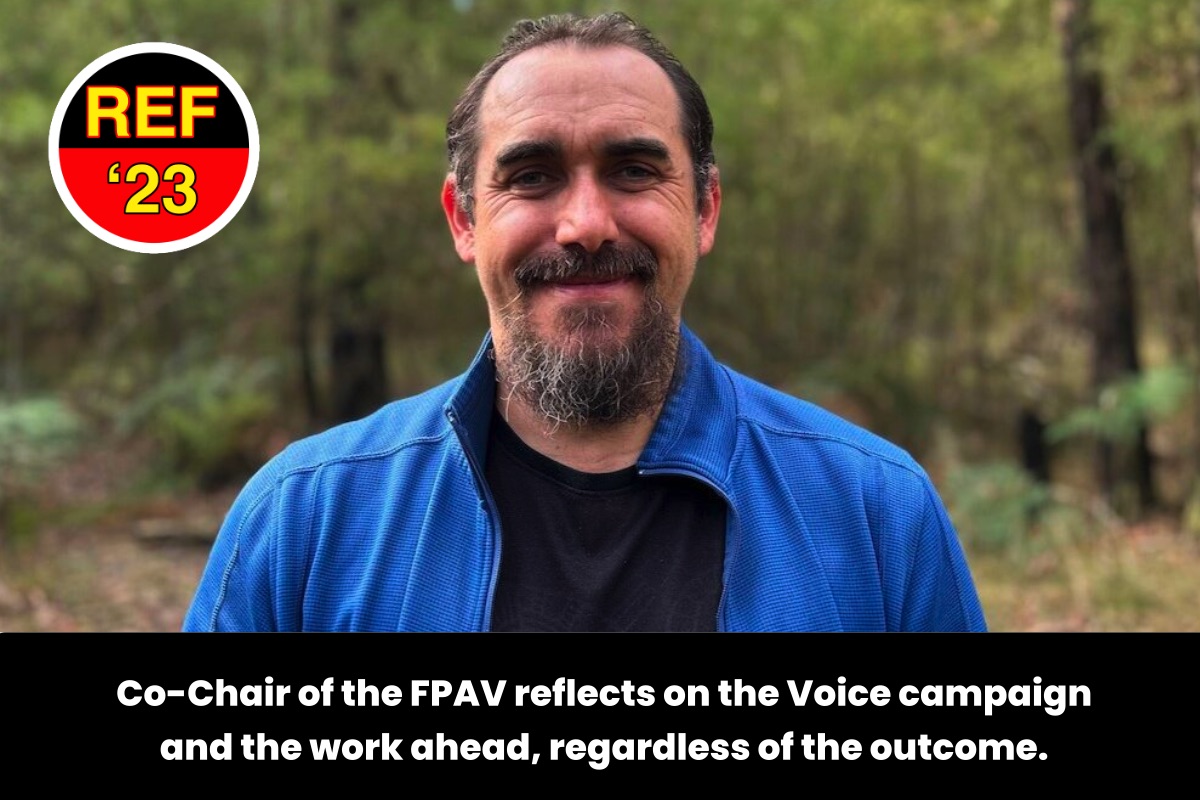
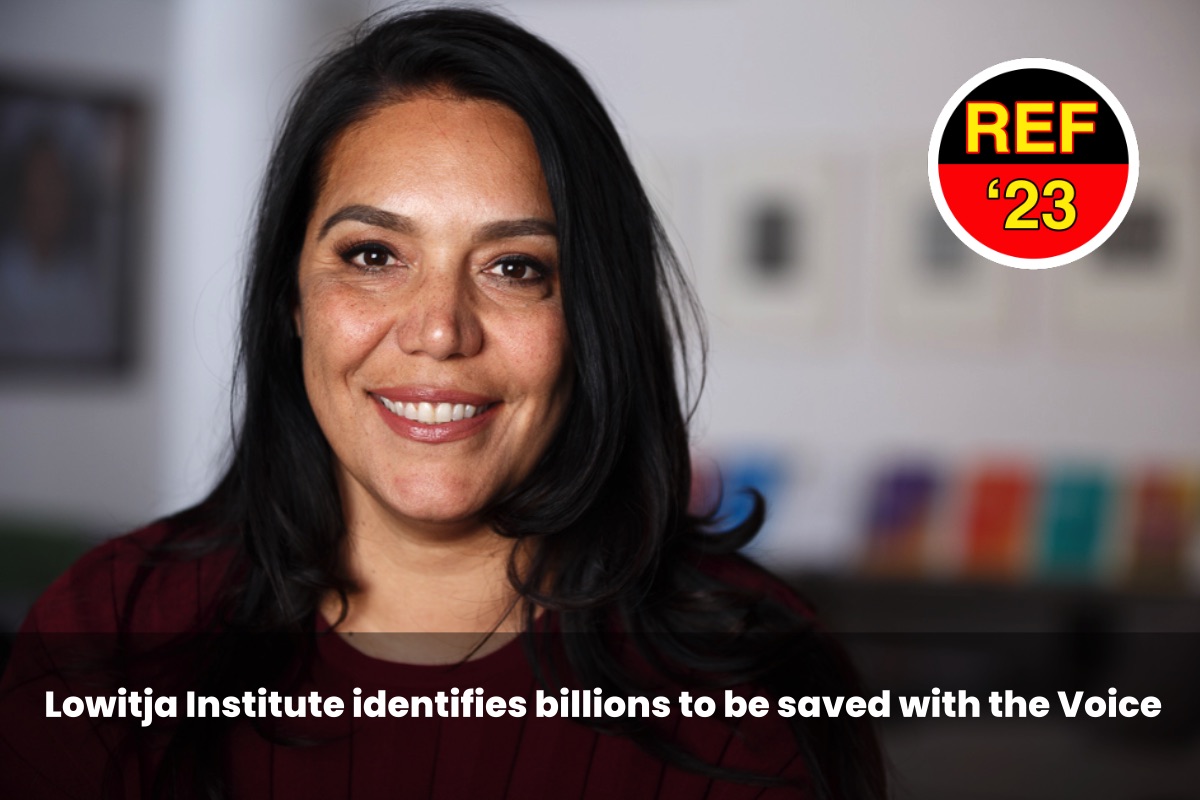
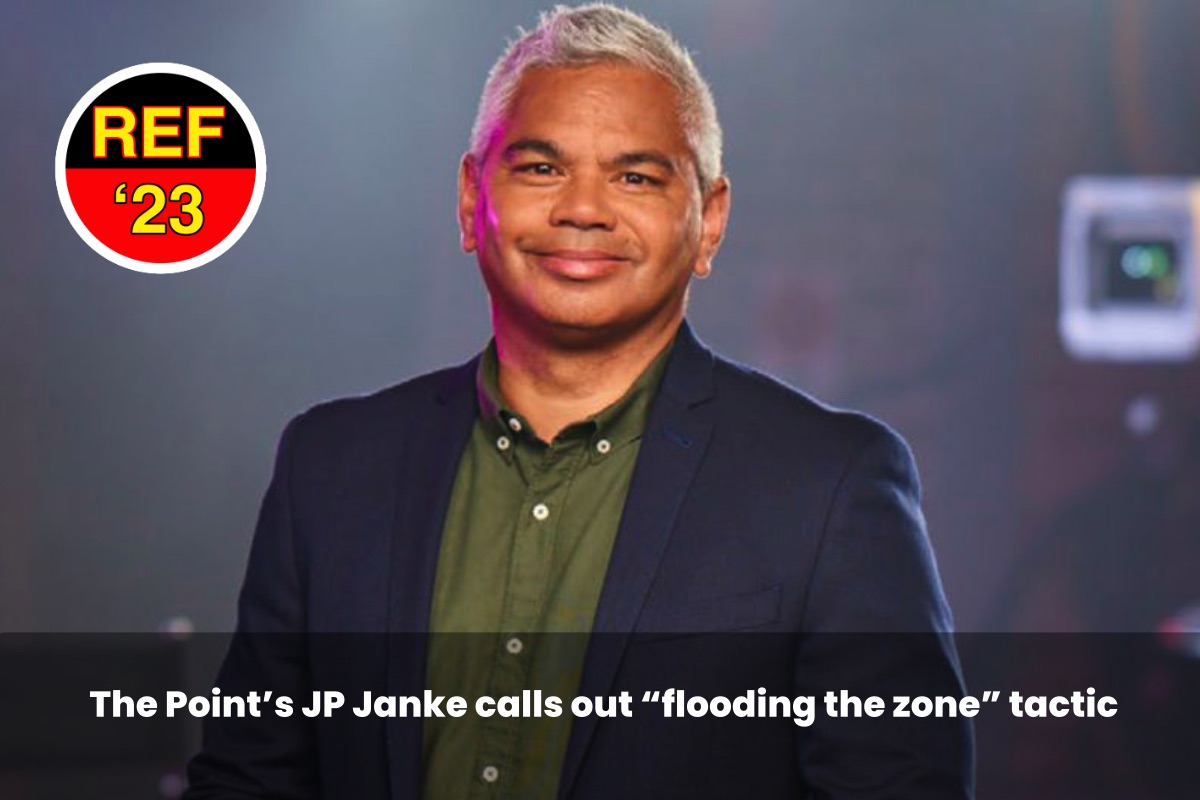
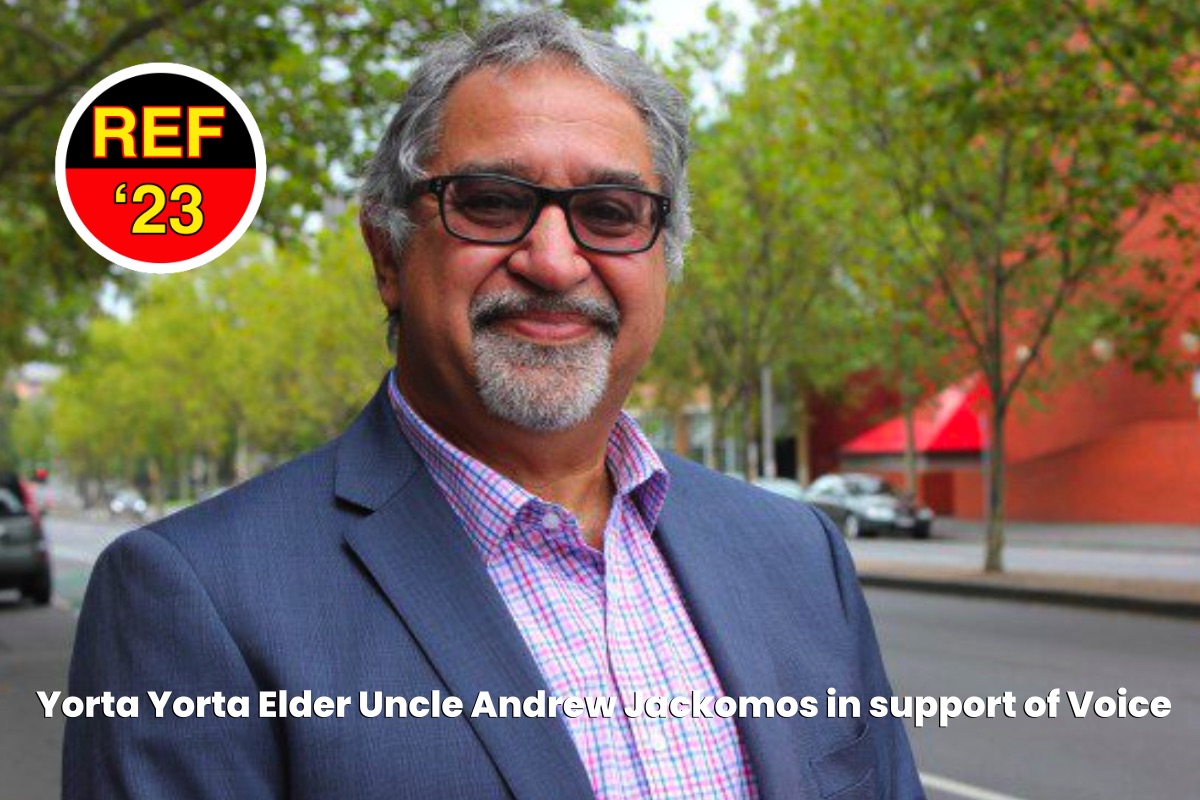
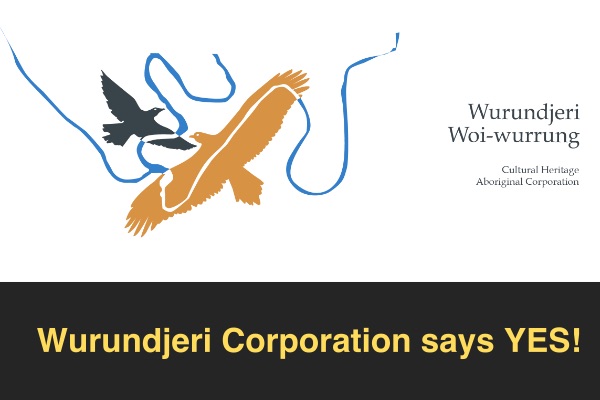

Absolutely loved the interview, everything Auntie Muriel stated is so true.
We need the yes vote so that all aboriginals have a say about community issues and to try close the gap that is forever getting wider.
We need to be recognised as the first nations people in our own country.
This message needs to be spoken to all non-Aboriginals in this country.
so sad that the immigrants and non-English communities don’t know about the yes vote.
There is so much ignorance and racism in Our Country